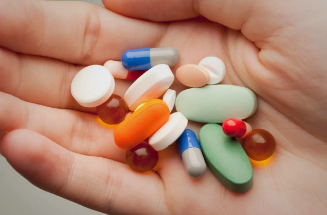By Lindsay Caldwell, Resident in Counseling, CFRA
Adolescence is a time of transformation, growth, and experimentation. Sometimes, this experimentation can sometimes extend to drug use. As a parent or caregiver, it’s distressing to see your teen struggle with substance abuse. Drug use can have an impact on both the teen’s mental health and the family’s overall well-being can be profound. In this post, we’ll dive into these effects and explore how therapy can provide a path to healing and recovery for both individuals and families.
The Impact of Drug Use on Teen Mental Health
Teen drug use can have severe repercussions on mental health. The adolescent brain is still developing, making it especially vulnerable to the effects of drugs. Here’s how compulsive substance use can impact a teen’s mental well-being:
- Cognitive Function: Drugs can impair cognitive functions, including memory, attention, and decision-making. For a teenager, this can translate into poor academic performance, difficulty in learning, and increased risk of dropping out of school.
- Emotional Instability: Many drugs affect mood regulation. Teens might experience heightened anxiety, depression, or even psychosis. This emotional instability can lead to mood swings, irritability, and a general sense of unease or hopelessness.
- Risky Behavior: Substance abuse often leads to an increase in risk-taking behaviors. Teens under the influence are more likely to engage in unsafe practices, such as unprotected sex or reckless driving, which can have long-term consequences on their health and safety.
- Social Withdrawal: Drug use can cause teens to withdraw from friends and family. This isolation can exacerbate feelings of loneliness and depression, creating a vicious cycle that is hard to break.
- Addiction and Dependency: The risk of developing a dependency or addiction is a serious concern. Addiction alters brain chemistry, making it incredibly challenging to stop using drugs without help.
The Ripple Effect: Family Mental Health
When a teenager is struggling with drug use, the impact extends beyond the individual. Families often bear the brunt of the emotional and psychological strain. Here’s how drug use can affect family dynamics:
- Increased Stress: Parents and siblings may experience heightened levels of stress and anxiety when a family member has a problem with drug use. Constant worry about the teen’s safety, health, and future can take a toll on everyone’s mental health.
- Relationship Strain: Excessive drug use can lead to conflicts within the family. Misunderstandings, arguments, and feelings of betrayal can strain relationships and create a toxic environment at home.
Guilt and Blame: Parents might question their own role in their teen’s drug use, feeling guilt or blaming themselves for the situation. This can lead to feelings of inadequacy and self-doubt.
The Role of Therapy in Healing
Therapy can be a powerful tool for both the teen and their family. Here’s how different types of therapy can make a difference:
- Individual Therapy for Teens: This provides a safe space for teens to explore their feelings, address underlying issues contributing to their drug use, and develop coping strategies. Cognitive-behavioral therapy (CBT) is particularly effective in helping teens identify and change negative thought patterns and behaviors.
- Family Therapy: This type of therapy involves the entire family and aims to improve communication and resolve conflicts. It helps families understand the dynamics at play and work together to support the teen’s recovery.
- Group Therapy: Participating in group therapy can provide teens with a sense of community and support from peers who are facing similar challenges. It can reduce feelings of isolation and offer practical advice and encouragement.
- Parenting Support: For parents, therapy can offer strategies for managing their own stress and improving their parenting approach. This support helps parents feel more confident in their ability to assist their teen through recovery.
Moving Forward
Addressing teen drug use requires a comprehensive approach that involves both the individual and the family. Therapy offers a path to understanding, healing, and rebuilding. It’s important to approach the situation with empathy, patience, and support, acknowledging that recovery is a process that takes time.
If you’re facing this challenge, don’t hesitate to reach out for professional help. Therapy can make a significant difference in overcoming the hurdles of drug abuse and restoring health and harmony to your family.
Remember, seeking help is a sign of strength, not weakness. It’s the first step toward a brighter, healthier future for your teen and your entire family.
References
- National Institute on Drug Abuse (NIDA). (2023). “Is drug use a problem among teens?” Retrieved from NIDA
- American Academy of Child and Adolescent Psychiatry (AACAP). (2023). “Substance Abuse in Adolescents.” Retrieved from AACAP
- Substance Abuse and Mental Health Services Administration (SAMHSA). (2022). “The Impact of Substance Use on Families.” Retrieved from SAMHSA
- National Alliance on Mental Illness (NAMI). (2023). “Mental Health and Substance Use Disorders.” Retrieved from NAMI
- Mayo Clinic. (2024). “Teen Drug Addiction: Understanding Treatment Options.” Retrieved from Mayo Clinic
#TeenDrugUse #MentalHealthMatters #FamilyTherapy #SubstanceAbuse #AdolescentHealth #RecoveryJourney
#SupportForFamilies #TherapyWorks #AddictionRecovery #MentalHealthAwareness #ParentingThroughAddiction
#YouthWellbeing

